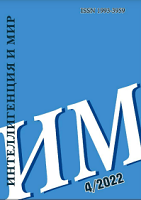Интеллигент в советской пенсионной системе начала 1930-х гг.: «пенсионная история» А. А. Достоевского
An intellectual in the Soviet pension system of the early 1930s: “pension history” of A. A. Dostoevsky
Author(s): Marina A. Zhirkova, Olga Vladimirovna Kapustina Subject(s): Economic history, Social history, Interwar Period (1920 - 1939), History of Communism
Published by: Ивановский государственный университет
Keywords: scientist; academic pension; length of service; personal pension provision; disability; pension amount; “Academic case”; rehabilitation;
Summary/Abstract: The relevance of the work is determined by the fact that the study of the biographies of individual representatives of the intelligentsia in the context of the activities of state systems allows us to evaluate large-scale historical events from the point of view of an ordinary person. The authors set the task: the study of pension problems of A. A. Dostoevsky (1863-1933), the writer’s nephew, against the backdrop of the historical events of the early 1930s. Documents on his pension provision stored in the State Archive of the Russian Federation were used as the main sources. Initially, the Academy of Sciences of the USSR filed a petition for granting to Andrei Andreevich an academic pension for long service, which was rejected due to the lack of Soviet scientific experience. The Academy of Sciences repeatedly petitioned for fixing a personal pension of federal significance for the scientist, which, while requiring exceptional services to the state, did not establish additional conditions for the length of service. After the documents were considered, a conditional conclusion was made on the possibility of assigning a pension of this type to the applicant, taking into account his own scientific works and the fact of kinship with F. M. Dostoevsky. However, in the end, A. A. Dostoevsky was assigned the least prestigious pension on disability of the second group on a general basis. The reason for this was the fact of his arrest in 1930 on the “Academic Case”. A. A. Dostoevsky was posthumously rehabilitated in 1989. However, in the studied documents, with reference to his own biography, information about his rehabilitation in 1931 with the right to live in Leningrad is provided. Thus, despite his release from places of detention, suspicions of disloyalty to the Soviet authorities did not allow to grant Andrei Andreevich a personal pension. But he was not left completely without state material support, perhaps his kinship with F. M. Dostoevsky played a role in this. In conclusion, the authors state that the Soviet pension system of the early 1930s largely depended on the political situation, and draw attention to the unresolved issue of the primary rehabilitation of the writer's nephew.
Journal: Интеллигенция и мир
- Issue Year: 2022
- Issue No: 4
- Page Range: 69-89
- Page Count: 21
- Language: Russian

